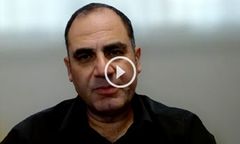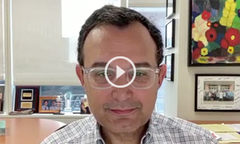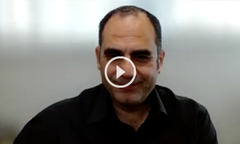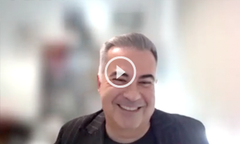
Dose Escalation of Luspatercept Is Underutilized in MDS
Saeed Sadeghi, MD, discusses valuable feedback he heard from oncologists on the use of luspatercept-aamt in patients with low-risk myelodysplastic syndrome.
Episodes in this series

Saeed Sadeghi, MD, clinical professor of medicine at the David Geffen School of Medicine at UCLA in Los Angeles, California, discusses valuable feedback he heard from oncologists on the use of luspatercept-aamt (Reblozyl) in patients with low-risk myelodysplastic syndrome (MDS).
Sadeghi said that an important takeaway on the use of luspatercept was to use dose escalation before considering the treatment to have failed. Dose escalation was used in the majority of patients with MDS enrolled in the trials that led to its approval; however, in real-world retrospective analysis from Cardinal Health data, over 60% of patients did not receive dose escalation. Participants in the Case-Based Roundtable event he moderated agreed that dose escalation of luspatercept is not always done in their practices.
A key question raised by the participants was whether luspatercept or another novel agent, imetelstat (Rytelo) impacted overall survival (OS) in these patients and reduced transformation to acute myeloid leukemia (AML). Sadeghi said that the trials are designed to provide data on these outcomes once longer follow-up is reached, but it could be challenging to show differences in OS and transformation to AML with these agents. Oncologists are still anticipating data on using these agents to change the course of patients’ MDS.
TRANSCRIPTION:
0:10 | One of the things that we discussed is the importance of the fact that you shouldn't consider treatment failure on luspatercept simply by giving the initial dose. It's important to remember that the majority of the patients on the trial did have dose escalation. I had also shown some real-world data that suggest that, unfortunately, in the real world, this dose escalation is not occurring in the majority of patients, in about 60% of the patients. One thing that was surprising was actually an agreement in the participants that, indeed, they had noted that this wasn't happening at their practices, which was a little bit surprising to me.
0:52 | Another comment of interest was the fact that there was a great deal of interest among the participants to see whether or not these new agents actually have bearing in terms of delaying progression of disease and reducing the risk of progression to AML development and also impacting OS. Actually, it's very difficult to show that benefit, and while the trials are designed to capture that potentially with follow up—transformation to AML and also possibly some OS data—again, it's going to be challenging to show that. But there was a great deal of interest…[from] the participants about the possibility of these agents changing the course of the disease.


























